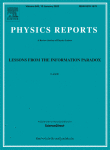
$$ \frac{\mathrm{Det}O_{\mathcal{A},t_{\mathfrak{0}},\mathfrak{t_{1}}}^{(u_{\mathfrak{1}})} }{\mathrm{Det}O_{\mathcal{A},t_{\mathfrak{0}},\mathfrak{t_{1}}}^{(u_{\mathfrak{1}})}}=\frac{\mathrm{det}(A_{\mathfrak{0}}+A_{\mathfrak{1}}\Phi_{*\, t_{\mathfrak{0}},\mathfrak{t_{1}}}^{(u_{\mathfrak{1}})})}{\mathrm{det}(A_{\mathfrak{0}}+A_{\mathfrak{1}}\Phi_{*\, t_{\mathfrak{0}},\mathfrak{t_{1}}}^{(u_{\mathfrak{1}})})} $$
A beautiful result by Robin Forman yields a powerful expression of functional determinants occurring in elliptic boundary value problems.